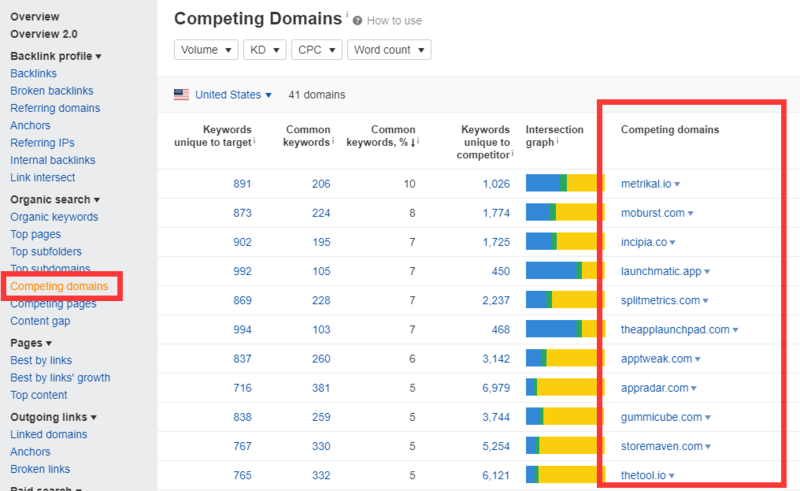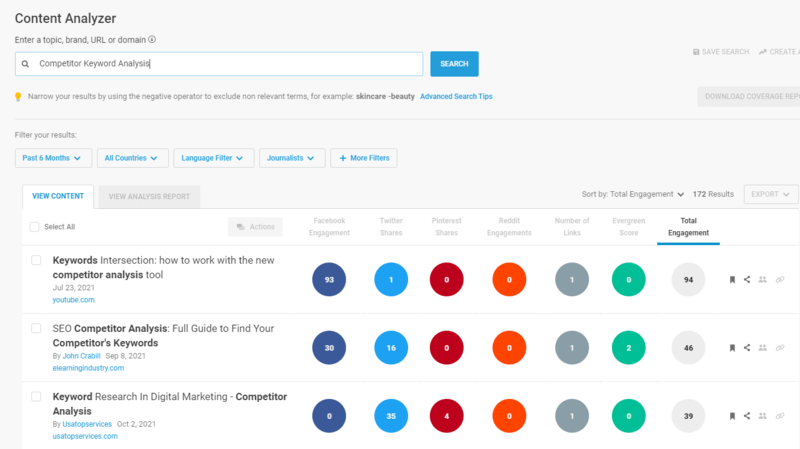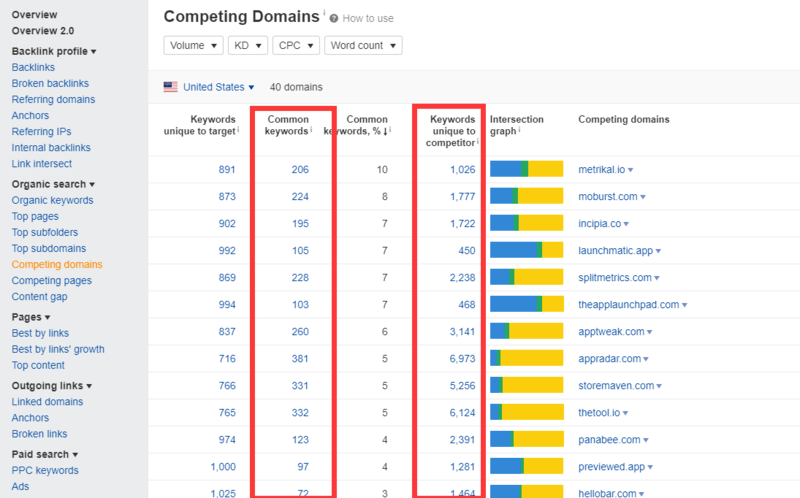How to Do an SEO Competitor Keyword Research (2023 Ultimate Guide)
Keyword research is at the heart of any effective SEO campaign, and competitor keyword research is an effective way to find more relevant, competitive, and “high intent” keywords. Taking a peek behind the scenes of your competitor’s keyword research will help you to find opportunity gaps and content topics that you might not have encountered on your own.
So, in this post, we’re going to walk you through how to use competitor analysis to uncover keywords and create content that can compete against your competitors’ organic traffic.
Before we dive deep into the strategy, let’s cover some basic information about competitor keyword research.

Contents
What Is Competitor Keyword Research?
An SEO competitor keyword analysis (sometimes called keyword gap analysis) is the process of researching what keywords your main competitors rank for and you don’t. Then, work out what they did to achieve those rankings and identify opportunities to improve your rankings.
By the time you’ve finished the research, you’ll be able to answer the questions like:
- Who are my competitors, and how can I stand out when compared to them online?
- What keywords should I be targeting and what topics do I need to cover with my content marketing strategy?
- How can I improve my keyword rankings based on what my competitor is doing?
Why Conduct a Competitor Keyword Analysis?
A thorough competitor keyword analysis will highlight opportunities that you can take advantage of to get ahead of other businesses in your space.
In details, performing an SEO competitor keyword analysis lets you:
- Steal your competitor’s keywords to compete for rankings in the same search results.
- Discover long tail keywords used by your target market that you hadn’t thought of yourself.
- Find out why your competitor’s website ranks above your specific keywords for broad search terms.
- Find ideas for improving your own content by viewing competitor keyword overlap
3 Steps to Conduct an Effective Competitor Keyword Analysis
Step #1. Identify Your Competitors
You probably already know your business competitors and search competitors. Please note that a business competitor isn’t equal to a search competitor. That’s because different companies will use different marketing strategies. For example, some of your business competitors may mainly focus in social media marketing and PPC to attract users while you are using SEO.
If you don’t know what you search competitors are, you can use some tools to help you.
One of the best tools for identifying your search competitors is Ahrefs. It has a Competing Domains report that makes the task much easier. Sign in Ahrefs, then you can find the tool via: Site Explorer > enter your domain > Organic search > Competing domains

Another useful tool is BuzzSumo. With this tool, you can simply enter the keywords or phrases that you want to rank for into a search bar and find the companies that are already ranking for those terms. Make a list of your major competitors so that you can analyses them more fully later.

Another method is to go directly to Google, search some of your top organic keywords, and find organic competitors directly in the search results.
Note:
- No matter which way you used, your search competitors can change depending on which time period or country you’re zeroing in on.
- Keep in mind, you should find competitors that have a similar website to yours in terms of size and traffic. You shouldn’t use Amazon.com as a competitor for your niche website, for example.
Step #2. Find Your Competitors’ Keywords
Once you know who your ranking competitors are, you’ll now need to get the keyword list of these competitors. You can use various competitor keyword research tools to identify the keywords for which your competitors rank well. Here, I take Ahrefs as an example.
To see a competitor’s keywords in Ahrefs, go to Site Explorer and input their domain. Then, click on ‘Organic keywords’ at the top of the page or in the left-hand sidebar for a list of the top organic keywords they rank for. Then, you can export the list.
There is another more effective way to export the keywords that your competitor is ranking for, but your target website isn’t. As you can see the picture below, you directly export the unique keywords that your competitor ranks.

Pro Tips: To make your data more accurate and useful, you may want to remove brand terms, low search volume keywords, or high competitive keywords. In this case, you can apply any filters before exporting.

Step #3. Analyze The Keywords
When you have your list, you can take the time to really dig into analyzing each competitor’s keyword list.
You can look at analyzing them for the following:
- Keyword difficulty and search volume for those that they rank highest
- Keyword relevance – not every keyword that your competitors rank for or that has a high search volume will be relevant to your business
- New keywords you didn’t think to rank for as opportunities
- SERP features for which your competitors rank
- Website content and on-page optimization efforts
What’s Next?
Running a competitor keyword research several times a year can be a good way to stay on top of the SEO competitive landscape. It will help you find opportunities for keywords you may have missed and gain a better understanding of your niche as a whole.
Now, it is your time to conduct a keyword gap analysis. In case you need a reminder, here’s an overview of the keyword gap analysis process:
- Find your SEO competitors
- Gather your competitor’s keyword data
- Analyze the keywords by relevance, search volume, keyword difficulty, etc.
What’s More:
Despite doing keyword research and publishing high-quality content, your website may still lag behind due to a poor backlink profile. So it is crucial to bridge any gaps that exist between your competitors’ inbound link profile and your own backlinks.
